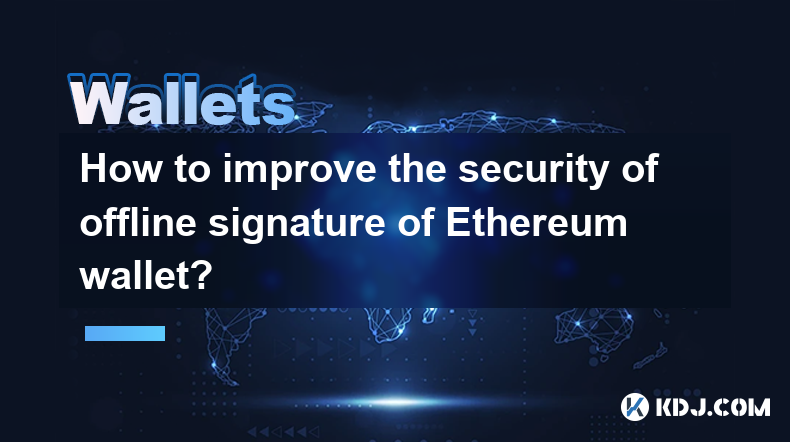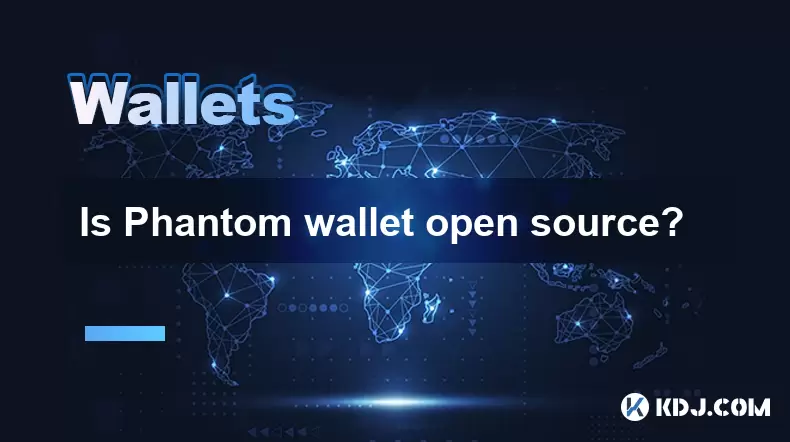-
 Bitcoin
Bitcoin $108,262.4325
-1.40% -
 Ethereum
Ethereum $2,518.2882
-2.94% -
 Tether USDt
Tether USDt $1.0003
-0.01% -
 XRP
XRP $2.2262
-1.71% -
 BNB
BNB $653.9254
-1.55% -
 Solana
Solana $148.1036
-3.11% -
 USDC
USDC $1.0000
0.01% -
 TRON
TRON $0.2829
-1.45% -
 Dogecoin
Dogecoin $0.1639
-4.82% -
 Cardano
Cardano $0.5742
-4.43% -
 Hyperliquid
Hyperliquid $38.9506
-3.95% -
 Sui
Sui $2.9040
-4.34% -
 Bitcoin Cash
Bitcoin Cash $484.8307
-2.62% -
 Chainlink
Chainlink $13.1971
-3.73% -
 UNUS SED LEO
UNUS SED LEO $9.0822
0.51% -
 Avalanche
Avalanche $17.8613
-4.01% -
 Stellar
Stellar $0.2385
-2.26% -
 Toncoin
Toncoin $2.7570
-3.88% -
 Shiba Inu
Shiba Inu $0.0...01145
-3.99% -
 Litecoin
Litecoin $86.9999
-2.43% -
 Hedera
Hedera $0.1538
-3.90% -
 Monero
Monero $313.7554
-2.03% -
 Polkadot
Polkadot $3.3681
-5.08% -
 Dai
Dai $1.0000
0.00% -
 Ethena USDe
Ethena USDe $1.0001
-0.01% -
 Bitget Token
Bitget Token $4.4401
-2.97% -
 Uniswap
Uniswap $6.9644
-8.41% -
 Pepe
Pepe $0.0...09666
-4.79% -
 Aave
Aave $266.5686
-5.04% -
 Pi
Pi $0.4713
-4.95%
How to improve the security of offline signature of Ethereum wallet?
Secure offline Ethereum wallet signing requires HSMs, air-gapped systems, robust key management (including multi-signature schemes), strong authentication, and regular software updates to minimize private key compromise risk.
Mar 15, 2025 at 01:35 pm

Key Points:
- Understanding the risks associated with offline Ethereum wallet signatures.
- Implementing hardware security modules (HSMs) for enhanced security.
- Utilizing air-gapped systems and secure operating environments.
- Employing robust key management practices and multi-signature schemes.
- Regularly updating and patching software and firmware.
- Implementing strong authentication mechanisms.
How to Improve the Security of Offline Signature of Ethereum Wallet?
Offline signature of Ethereum wallets offers a significant boost in security against online threats. However, even offline, vulnerabilities exist. This article details several crucial methods to enhance the security of your offline Ethereum wallet signing process. The goal is to minimize the risk of private key compromise, a catastrophic event in the cryptocurrency world.
Hardware Security Modules (HSMs): The Fortress of Security
HSMs are specialized hardware devices designed to protect cryptographic keys. They provide a tamper-resistant environment for generating, storing, and using private keys, significantly reducing the risk of compromise even if the computer is compromised. Integrating an HSM into your offline signature workflow is a substantial upgrade in security.
Air-Gapping and Secure Operating Environments
Air-gapping means completely isolating the machine used for signing transactions from any network connection. This prevents malicious software from remotely accessing your private keys. Furthermore, utilizing a secure operating environment, such as a minimal Linux distribution specifically hardened for security, further minimizes the attack surface.
Robust Key Management Practices
Strong key management is paramount. This involves using strong, randomly generated private keys, never reusing keys across different wallets or applications, and employing secure storage methods for backups. Consider using a key management system designed for offline key handling and protection.
Multi-Signature Schemes: Sharing the Burden of Security
Multi-signature transactions require multiple parties to authorize a transaction before it's executed. This distributes the risk, as compromising a single key doesn't automatically lead to the loss of funds. Implementing a multi-signature scheme adds an extra layer of security to your offline signing process.
Software and Firmware Updates: Staying Ahead of the Curve
Regularly updating the software and firmware of your HSM, operating system, and any related tools is crucial. Outdated software often contains vulnerabilities that attackers can exploit. Keeping everything updated minimizes these risks and keeps your security measures current.
Strong Authentication Mechanisms
Implement robust authentication mechanisms to protect access to your signing machine and the signing process itself. This could include multi-factor authentication (MFA), strong passwords, and potentially biometric authentication, depending on the HSM and operating system capabilities. Remember, a strong password is crucial, even in an offline environment.
Physical Security: Protecting the Hardware
The physical security of your signing machine and any related hardware, such as HSMs, is vital. Store them in a secure location, preferably a safe or vault, to prevent theft or unauthorized access. Physical security is often overlooked but is as important as the digital security measures.
Regular Security Audits:
Undertaking regular security audits, either independently or through a third-party security firm, can help identify potential vulnerabilities in your offline signing process. These audits can reveal weaknesses that might have been overlooked and help you to strengthen your security posture.
Detailed Procedures and Documentation:
Establish clear and well-documented procedures for the entire offline signing process. This ensures consistency and minimizes human error, which can lead to security breaches. Regularly review and update these procedures to reflect any changes in your setup or best practices.
Frequently Asked Questions (FAQs)
Q: What is the biggest risk in offline Ethereum wallet signatures?
A: The biggest risk is the compromise of the private key, either through malware, physical theft, or human error. This allows unauthorized individuals to spend the funds associated with the wallet.
Q: Are HSMs necessary for secure offline signing?
A: While not strictly mandatory, HSMs significantly enhance security by providing a tamper-resistant environment for key management. They are highly recommended for high-value assets.
Q: How can I ensure my air-gapped system remains truly isolated?
A: Ensure the machine has no network connections (Wi-Fi, Ethernet, Bluetooth). Use only offline-created media for software installation and data transfer. Thoroughly inspect the system for any hidden network interfaces.
Q: What are some best practices for key backups?
A: Use a robust, encrypted backup method. Store backups in multiple geographically separate, secure locations. Consider using multiple independent backup methods to safeguard against data loss or corruption.
Q: How often should I update my software and firmware?
A: Follow the vendor's recommendations for updates. Generally, promptly installing security patches is crucial to mitigating newly discovered vulnerabilities. Regular updates are vital to maintaining a strong security posture.
Q: What is the benefit of using multi-signature transactions?
A: Multi-signature transactions require multiple signatures to authorize a transaction, significantly reducing the risk of unauthorized spending even if one private key is compromised. It distributes the trust and the risk.
Disclaimer:info@kdj.com
The information provided is not trading advice. kdj.com does not assume any responsibility for any investments made based on the information provided in this article. Cryptocurrencies are highly volatile and it is highly recommended that you invest with caution after thorough research!
If you believe that the content used on this website infringes your copyright, please contact us immediately (info@kdj.com) and we will delete it promptly.
- Bitcoin's Pattern Break: Are HODLers the Key to the Next Surge?
- 2025-07-04 18:50:12
- Bitcoin Price, Trump's Bill, and the $150K Dream: A NYC Take
- 2025-07-04 19:50:12
- Ethereum, LILPEPE, and the July Bounce: Will Pepe Steal ETH's Thunder?
- 2025-07-04 19:10:12
- Binance Institutional Loans: Unlocking 4x Leverage and Zero Interest for Whales
- 2025-07-04 19:15:12
- Bitcoin Bull Run: Analysts Eye Peak in Late 2025?
- 2025-07-04 19:20:13
- Pepe Indicators, Bullish Forecast: Can the Meme Coin Rally?
- 2025-07-04 19:25:12
Related knowledge

How to cancel a pending transaction in Phantom wallet?
Jul 03,2025 at 07:21pm
Understanding Pending Transactions in Phantom WalletA pending transaction in the Phantom wallet occurs when a user initiates a transfer or interaction with the Solana blockchain, but it hasn't yet been confirmed by the network. This can happen due to various reasons such as low transaction fees, network congestion, or incorrect gas settings. It's import...

How to see the estimated value of my tokens in Phantom wallet?
Jul 04,2025 at 12:21am
What is Phantom Wallet?Phantom wallet is one of the most popular cryptocurrency wallets designed for the Solana blockchain. It allows users to store, send, receive, and manage various tokens built on Solana, including SPL tokens and NFTs. The wallet offers a user-friendly interface, making it accessible for both beginners and advanced users in the crypt...

How to lock my Phantom wallet extension?
Jul 03,2025 at 11:14am
What Is the Phantom Wallet and Why Lock It?The Phantom wallet is a popular non-custodial cryptocurrency wallet designed for interacting with the Solana blockchain. Supporting both browser extensions and mobile apps, Phantom allows users to store, send, receive, and stake SOL tokens, as well as interact with decentralized applications (dApps). Securing y...

Does Phantom wallet offer two-factor authentication (2FA)?
Jul 03,2025 at 09:00am
Understanding Phantom Wallet and Its Security FeaturesPhantom wallet is a widely used non-custodial cryptocurrency wallet that supports the Solana blockchain. It allows users to store, send, receive, and interact with decentralized applications (dApps) seamlessly. As security is a top priority for any crypto wallet user, security features like two-facto...

What is "rent" on Solana and how does it affect my Phantom wallet?
Jul 02,2025 at 08:35pm
Understanding 'Rent' on SolanaIn the context of Solana, the term 'rent' refers to a storage fee that users pay for maintaining data on the blockchain. Unlike Ethereum, where storage costs are paid once via gas fees during contract deployment, Solana implements a recurring cost model to ensure efficient usage of network resources. This means that any acc...

Is Phantom wallet open source?
Jul 03,2025 at 12:29am
What is Phantom Wallet?Phantom wallet is a non-custodial cryptocurrency wallet primarily designed for the Solana blockchain. It allows users to store, send, receive, and interact with decentralized applications (dApps) on the Solana network. The wallet is available as a browser extension and mobile application, offering a seamless experience for both be...

How to cancel a pending transaction in Phantom wallet?
Jul 03,2025 at 07:21pm
Understanding Pending Transactions in Phantom WalletA pending transaction in the Phantom wallet occurs when a user initiates a transfer or interaction with the Solana blockchain, but it hasn't yet been confirmed by the network. This can happen due to various reasons such as low transaction fees, network congestion, or incorrect gas settings. It's import...

How to see the estimated value of my tokens in Phantom wallet?
Jul 04,2025 at 12:21am
What is Phantom Wallet?Phantom wallet is one of the most popular cryptocurrency wallets designed for the Solana blockchain. It allows users to store, send, receive, and manage various tokens built on Solana, including SPL tokens and NFTs. The wallet offers a user-friendly interface, making it accessible for both beginners and advanced users in the crypt...

How to lock my Phantom wallet extension?
Jul 03,2025 at 11:14am
What Is the Phantom Wallet and Why Lock It?The Phantom wallet is a popular non-custodial cryptocurrency wallet designed for interacting with the Solana blockchain. Supporting both browser extensions and mobile apps, Phantom allows users to store, send, receive, and stake SOL tokens, as well as interact with decentralized applications (dApps). Securing y...

Does Phantom wallet offer two-factor authentication (2FA)?
Jul 03,2025 at 09:00am
Understanding Phantom Wallet and Its Security FeaturesPhantom wallet is a widely used non-custodial cryptocurrency wallet that supports the Solana blockchain. It allows users to store, send, receive, and interact with decentralized applications (dApps) seamlessly. As security is a top priority for any crypto wallet user, security features like two-facto...

What is "rent" on Solana and how does it affect my Phantom wallet?
Jul 02,2025 at 08:35pm
Understanding 'Rent' on SolanaIn the context of Solana, the term 'rent' refers to a storage fee that users pay for maintaining data on the blockchain. Unlike Ethereum, where storage costs are paid once via gas fees during contract deployment, Solana implements a recurring cost model to ensure efficient usage of network resources. This means that any acc...

Is Phantom wallet open source?
Jul 03,2025 at 12:29am
What is Phantom Wallet?Phantom wallet is a non-custodial cryptocurrency wallet primarily designed for the Solana blockchain. It allows users to store, send, receive, and interact with decentralized applications (dApps) on the Solana network. The wallet is available as a browser extension and mobile application, offering a seamless experience for both be...
See all articles

























































































